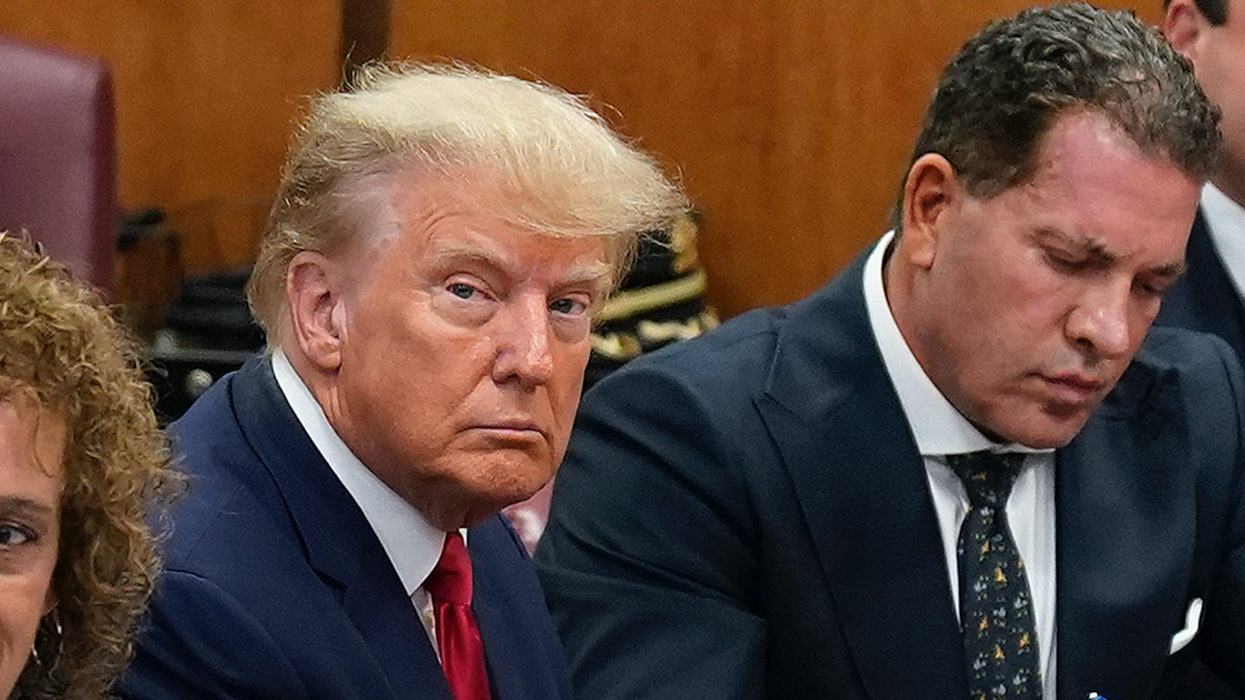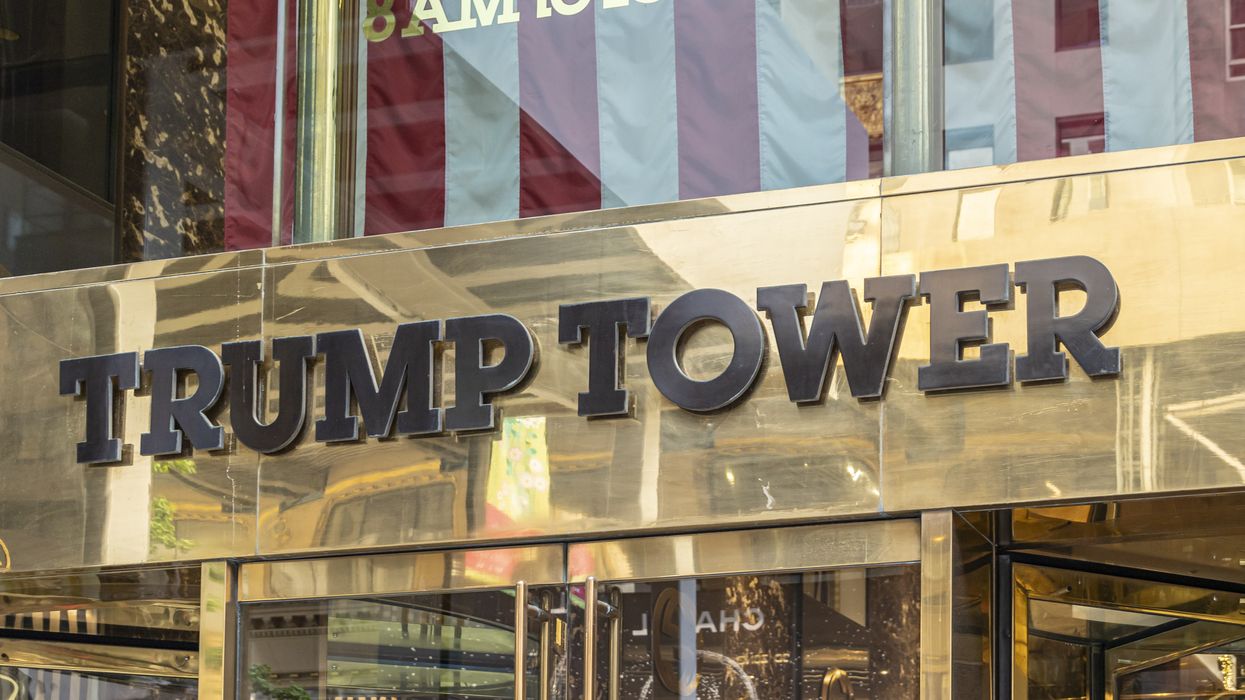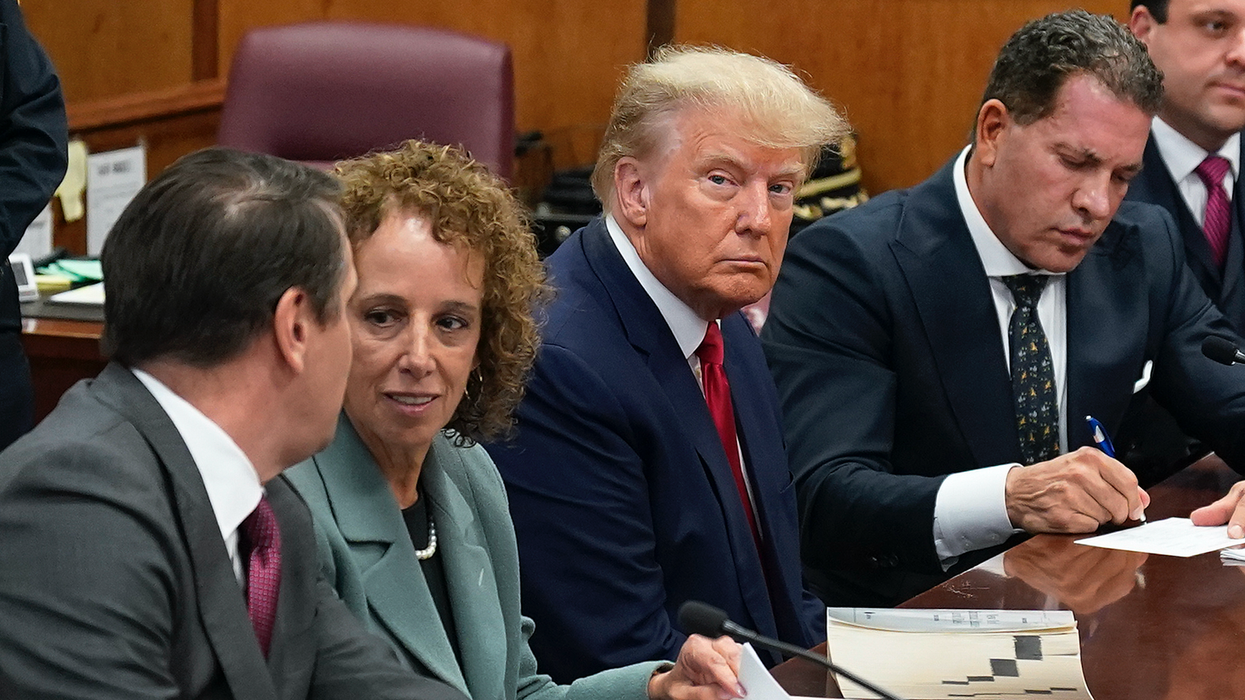NY Appeals Court Delivers Reprieve for Trump on $454 Million Bond
"They sure let him twist in the wind until the last moment," said one legal expert.
As the deadline arrived Monday for Donald Trump to pay a $454 million bond following a New York judge's ruling that the former Republican president and his company committed fraud, an appeals court in the state ruled that Trump would be permitted to post a vastly reduced amount.
The appeals court panel said the presumptive 2024 GOP presidential nominee could pay $175 million after the former president indicated he was unable to pay the full amount, having sought the bond from more than two dozen surety companies.
New York Attorney General Letitia James indicated earlier this month that she could begin seizing Trump's assets as soon as Monday if he was unable to pay the $454 million judgment.
Trump was hit with the fine as the result of James' civil fraud case against the former president and his real estate company, the Trump Organization. Judge Arthur Engoron found Trump and the firm had committed "repeated and persistent fraud," including by falsifying financial statements by as much as $2.2 billion.
The former president is appealing the ruling and had looked for companies to guarantee the full amount of the bond in the event that he lost the appeal, but with much of his fortune tied up in his properties, he was unable to come up with the collateral demanded by the institutions.
Trump said Monday that he plans to "post either a bond, equivalent securities, or cash" within the 10 days granted by the appeals court in order to delay enforcement of the full fine.
Former U.S. Attorney Harry Litman, now a senior legal affairs columnist for the Los Angeles Times, said the "pro-business" appellate court's decision was not surprising and was "reasonable," considering that "a bond is designed to secure eventual payment, not to financially wreck the defendant."
"In a sense the decision reducing Trump's bond and giving him more time is consistent with the 'treat Trump like any other litigant' credo," said Litman, "but they sure let him twist in the wind until the last moment."
James' office responded to the appeals court's decision by focusing on the fact that the full judgment against Trump, his sons Eric Trump and Donald Trump Jr., and former executive Allen Weisselberg still stands.
"Donald Trump is still facing accountability for his staggering fraud," said a spokesperson for James. "The court has already found that he engaged in years of fraud to falsely inflate his net worth and unjustly enrich himself, his family, and his organization."


